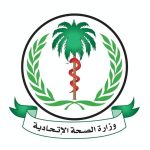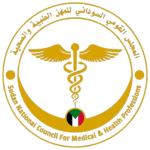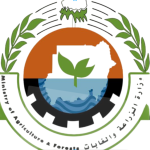About Faculty of Agriculture
Organizational Structure
Faculty Council
Academic Calendar
We strive to be a global leader in education, research, and innovation in the agricultural sector, committed to developing sustainable practices, enhancing food security, and improving the livelihoods of communities around the world.
Our mission is to empower students and provide them with the knowledge, skills, and ethical values necessary to become innovative leaders in agriculture. We are committed to pioneering scientific research in agricultural sciences, supporting sustainable agricultural practices, and fostering collaboration with local communities to enhance food security and preserve the environment.
The college, in accordance with the nature of its programs, works to achieve the general objectives of the university as well as its own specific goals, which are as follows:
Preparing and qualifying students to obtain a university degree (Bachelor’s) in Agricultural Sciences.
Preparing and qualifying students to obtain intermediate diplomas in Agricultural Sciences.
Offering postgraduate studies at the levels of Higher Diploma, Master’s, and Doctorate to prepare specialized cadres in various branches of agricultural sciences and related fields.
Conducting scientific research and disseminating agricultural knowledge, technologies, and their applications that contribute to the scientific advancement of agricultural sciences and serve Sudanese agricultural production and agro-industry.
Providing extension services and community outreach in the fields of agricultural production, agro-industrial development, food safety, sustainability of agricultural resources, and environmental health.
Strengthening relations with agricultural and industrial production institutions, agricultural faculties, and research centers at the local, Arab, African, and international levels, as well as with regional and international organizations.
Contributing to the development of rural communities, particularly vulnerable groups, with a special focus on rural women.
More Information
Undergraduate degrees: Bachelor’s programs in agricultural sciences, agricultural business management, plant breeding, animal sciences, and other related disciplines. Graduate degrees: Master’s and doctoral programs focusing on specialized research areas in agriculture. Training courses and certificates: Short-term training courses and professional development programs.
Crop Improvement: Developing new crop varieties with higher yields, disease resistance, and adaptability to different climates. Sustainable Agriculture: Conducting research on agricultural practices that reduce environmental impact and promote long-term sustainability. Animal Husbandry: Studies to improve livestock productivity, health, and welfare. Soil Science: Conducting research on soil management, fertility, and protection.
Awareness Programs: Providing necessary information and resources to farmers and agricultural experts to improve agricultural practices and increase productivity. Workshops and Training: Organizing seminars and practical workshops on various agricultural technologies. Consulting Services: Providing expertise and guidance to specialists in the agricultural sector.
• A residential unit for professors, divided into three types of houses: large, medium and small, with two floors, built in a modern style with the establishment of the college.
• Lecture halls, 6 large halls, 7 laboratories, a meeting hall, and offices for departments, professors, and services.
• A large library
• Housing for male and female students within the complex
• An integrated medical unit
• Water sources for irrigation and drinking
• A forest of different forest trees
• Fields for various sports activities
Partnerships with the private sector: Collaborating with agricultural companies and institutions to implement research and innovation findings in this field.
Government agencies: Collaborating in developing policies, regulations, and programs to support the agricultural sector.
International organizations: Participating in global initiatives and research projects that address challenges in the agricultural sector.
Graduates of the College of Agriculture can choose to specialize in the following fields:
Agricultural Research: Work in research centers, universities, and private companies.
Farm Management: Managing and operating agricultural projects.
Agribusiness: Work in marketing, finance, and management in the agricultural sector.
Government Work and Policy Formulation: Positions in ministries, regulatory bodies, and agricultural policy-making organizations.
Environmental Consulting: Providing advice on sustainable agricultural practices and mitigating environmental impacts.
Each College of Agriculture has its own research programs and resources, tailored to the agricultural needs and trends in its region.
The Abu Naama College of Agriculture and Natural Resources was established in 1978 with funding from the World Bank. It was the first specialized agricultural college in rain-fed agriculture in the savanna belt of Sudan at that time. The goal of establishing the college was to graduate intermediate-level cadres with a diploma in general agriculture following a three-year system to implement agricultural development programs in both rain-fed and irrigated sectors. There was a greater focus on the rain-fed sector due to the massive agricultural expansion that began in the 1970s and 1980s, leading to mechanized agricultural projects in Gedaref and the Blue Nile, the Sudanese-Egyptian integration projects, the Saudi project, the American project in South Blue Nile, the Canadian project in Gedaref, in addition to the Arab Company for Agricultural Development in Agadi and national companies such as Sheikh Mustafa Al-Amin, Jandil, and others. Graduates of this college played a pioneering role in leading agricultural development in these projects.
“The first batch was accepted in 1978 and graduated in 1980/1981. The acceptance of students continued until 1991. Afterwards, the college joined the University of Omdurman Islamic University, and the first batch under the name of Omdurman Islamic University was accepted in 1991. Abu Naama’s affiliation with Omdurman University lasted for 6 months, and when Omdurman Islamic University failed to meet some commitments regarding training for faculty members and developing laboratories, after 6 months of the college’s affiliation with the university, it separated from it. The establishment of Blue Nile University was announced in 1992, and Abu Naama College of Agriculture and Natural Resources became its first nucleus. In 1992, the first batch of undergraduate students was accepted at Blue Nile University, which was equivalent to batch 16 in the general acceptance. In 1993, the first batch of students for the Animal Production Diploma program was accepted at the college. Student admissions for the diploma and undergraduate programs in the College of Agriculture continued until 1994, when the fourteenth constitutional decree was issued, which divided Sudan into states and stipulated that each state should have a university. Thus, Blue Nile University became the University of Sennar, and the College of Agriculture became the mother of the colleges at the university, bearing the majority of the responsibility for establishing new colleges. The college is about six kilometers from the asphalt road to Sennar-Damazin, connected by an earthen embankment.”




